Accessing your files using the Nextcloud Web interface¶
You can access your Nextcloud files with the Nextcloud Web interface and create, preview, edit, delete, share, and re-share files. Your Nextcloud administrator has the option to disable these features, so if any of them are missing on your system ask your server administrator.
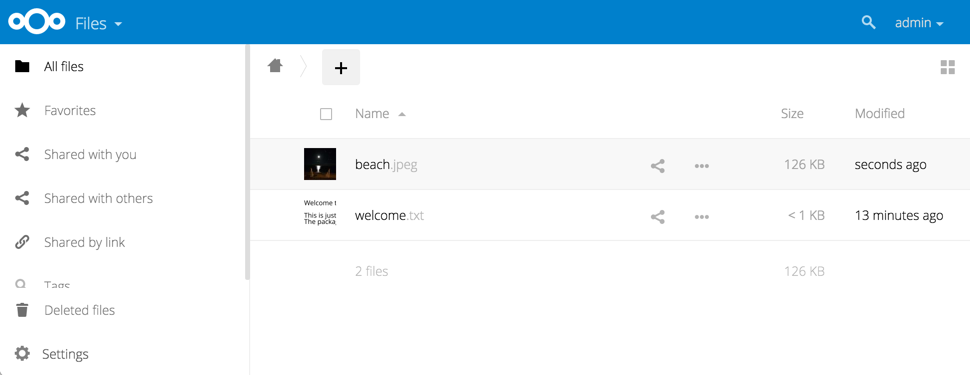
Tagging files¶
You can assign tags to files. To create tags, open a file to the Details view. Then type your tags. To enter more than one tag press the return key after creating each tag. All tags are system tags, and are shared by all users on your Nextcloud server.
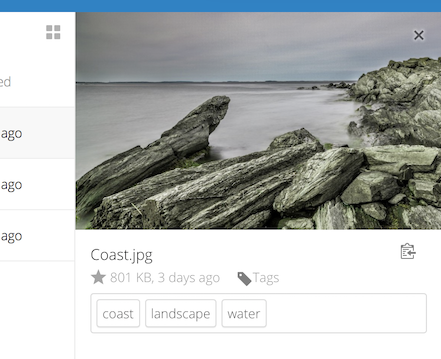
Then use the Tags filter on the left sidebar to filter files by tags.
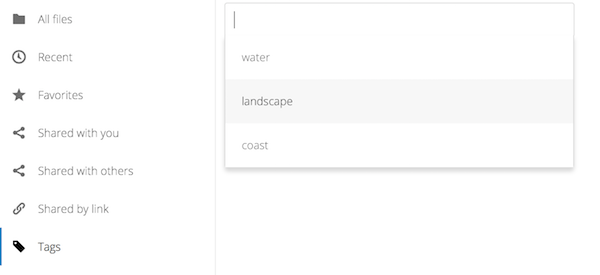
Comments¶
Use the Details view to add and read comments on any file or folder. Comments are visible to everyone who has access to the file.

Video player¶
You can play videos in Nextcloud with the Video Player app by simply clicking on the file. Video streaming by the native Nextcloud video player depends on your Web browser and the video format. If your Nextcloud administrator has enabled video streaming, and it doesn’t work in your Web browser, it may be a browser issue. See https://developer.mozilla.org/en-US/docs/Web/HTML/Supported_media_formats#Browser_compatibility for supported multimedia formats in Web browsers.
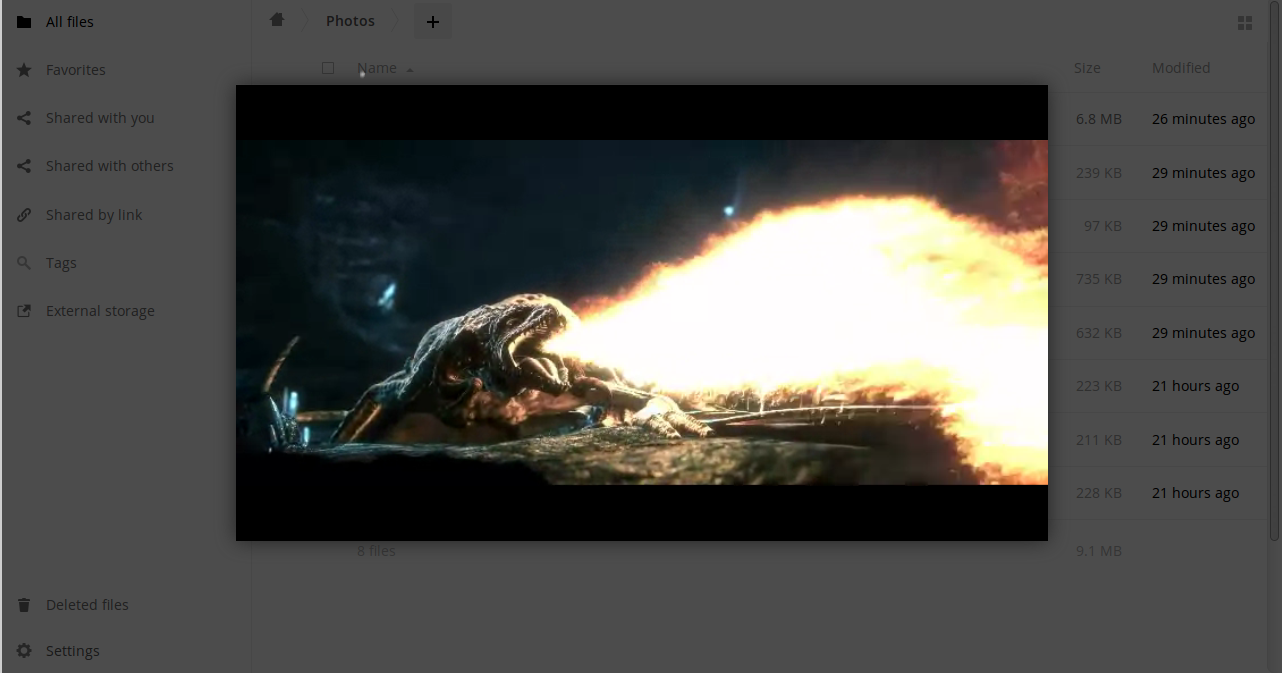
File controls¶
Nextcloud can display thumbnail previews for image files, MP3 covers, and text files, if this enabled by your server administrator. Hover your cursor over a file or folder to expose the controls for the following operations:
- Favorites
- Click the star to the left of the file icon to mark it as a favorite, and quickly find all of your favorites with the Favorites filter on the left sidebar.

- Share
- Share the file or folder with a group or other users, and create public shares with hyperlinks. You can also see who you have shared with already, and revoke shares by clicking the trash can icon.
Note
Since version 9.0, you can see all re-shares of your original file shares.
If username auto-completion is enabled, when you start typing the user or group name Nextcloud will automatically complete it for you. If your administrator has enabled email notifications, you can send an email notification of the new share from the sharing screen.
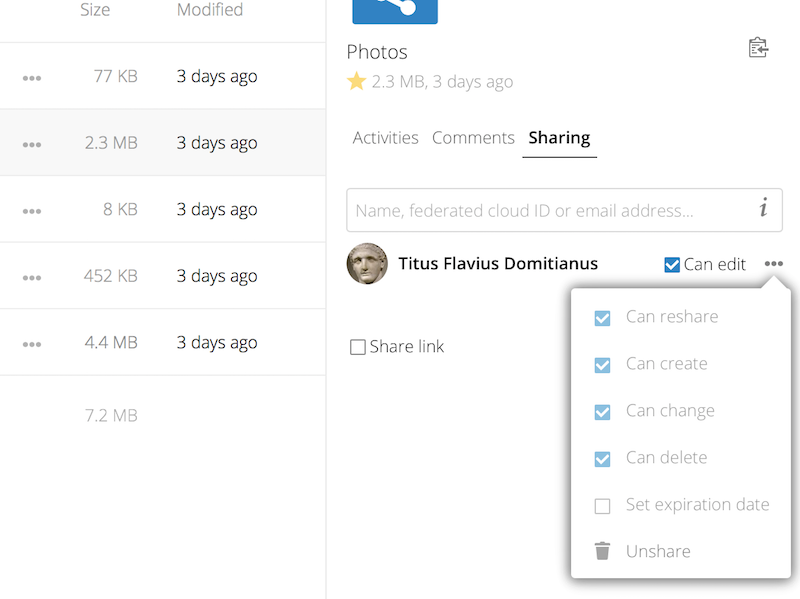
You have five share permissions:
- Can share; allows the users you share with to re-share.
- Can edit; allows the users you share with to edit your shared files, and to collaborate using the Documents app.
- Create; allows the users you share with to create new files and add them to the share.
- Change; allows uploading a new version of a shared file and replacing it.
- Delete; allows the users you share with to delete shared files.
- Overflow Menu
- The Overflow menu (three dots) displays file details, and allows you to rename, download, or delete files.
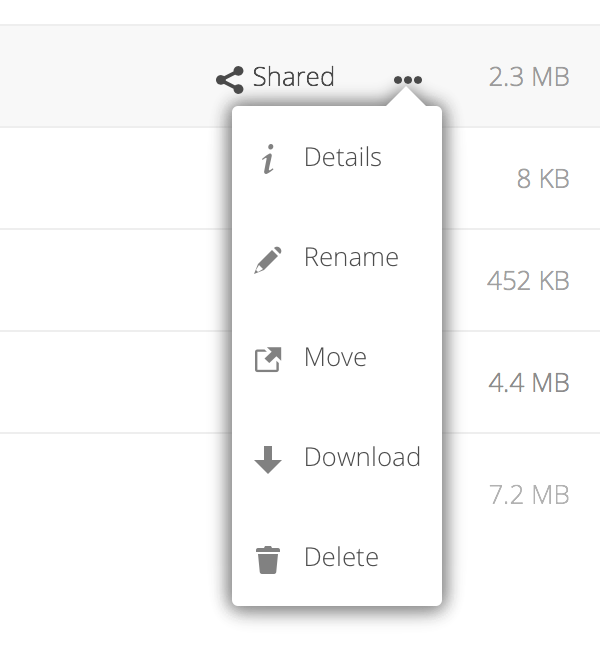
The Details view shows Activities, Sharing, and Versions information.
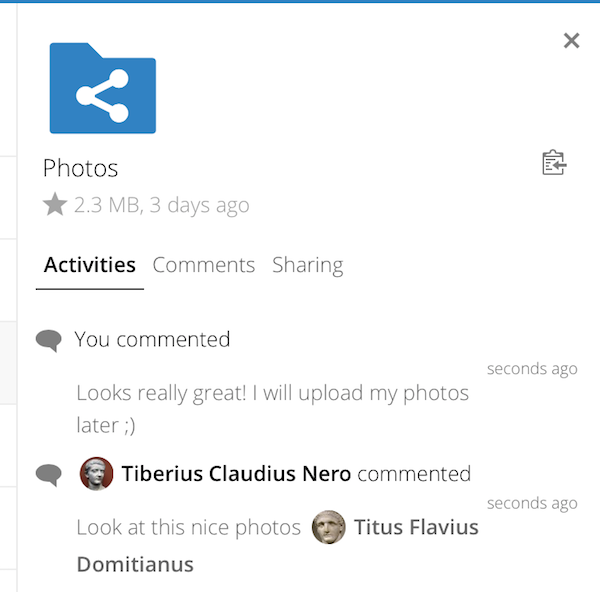
The Settings gear icon at the lower left allows you to show or hide hidden
files in your Nextcloud Web interface. These are also called dotfiles, because
they are prefixed with a dot, e.g. .mailfile. The dot tells your operating
system to hide these files in your file browsers, unless you choose to display
them. Usually these are configuration files, so having the option to hide them
reduces clutter.

Previewing files¶
You can display uncompressed text files, OpenDocument files, videos, and image files in the Nextcloud embedded viewers by clicking on the file name. There may be other file types you can preview if your Nextcloud administrator has enabled them. If Nextcloud cannot display a file, it starts a download process and downloads the file to your computer.
Sharing status icons¶
Any folder that has been shared is marked with the Shared overlay icon.
Public link shares are marked with a chain link. Un-shared folders are blank.

Creating or uploading files and directories¶
Upload or create new files or folders directly in an Nextcloud folder by clicking on the New button in the Files app.
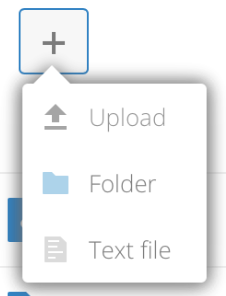
The New button provides the following options:
- Up arrow
- Upload files from your computer into Nextcloud. You can also upload files by dragging and dropping them from your file manager.
- Text file
- Creates a new text file and adds the file to your current folder.
- Folder
- Creates a new folder in the current folder.
Selecting files or folders¶
You can select one or more files or folders by clicking on their checkboxes. To select all files in the current directory, click on the checkbox located at the top of the files listing.
When you select multiple files, you can delete all of them, or download them as
a ZIP file by using the Delete or Download buttons that appear at the
top.
Note
If the Download button is not visible, the administrator has
disabled this feature.
Filtering the files view¶
The left sidebar on the Files page contains several filters for quickly sorting and managing your files.
- All files
- The default view; displays all files that you have access to.
- Favorites
- Files or folders marked with the yellow star.
- Shared with you
- Displays all files shared with you by another user or group.
- Shared with others
- Displays all files that you have shared with other users or groups.
- Shared by link
- Displays all files that are shared by you via public link.
- External Storage (optional)
- Files that you have access to on external storage devices and services such as Dropbox, Google, and Amazon S3.
Moving files¶
You can move files and folders by dragging and dropping them into any directory.